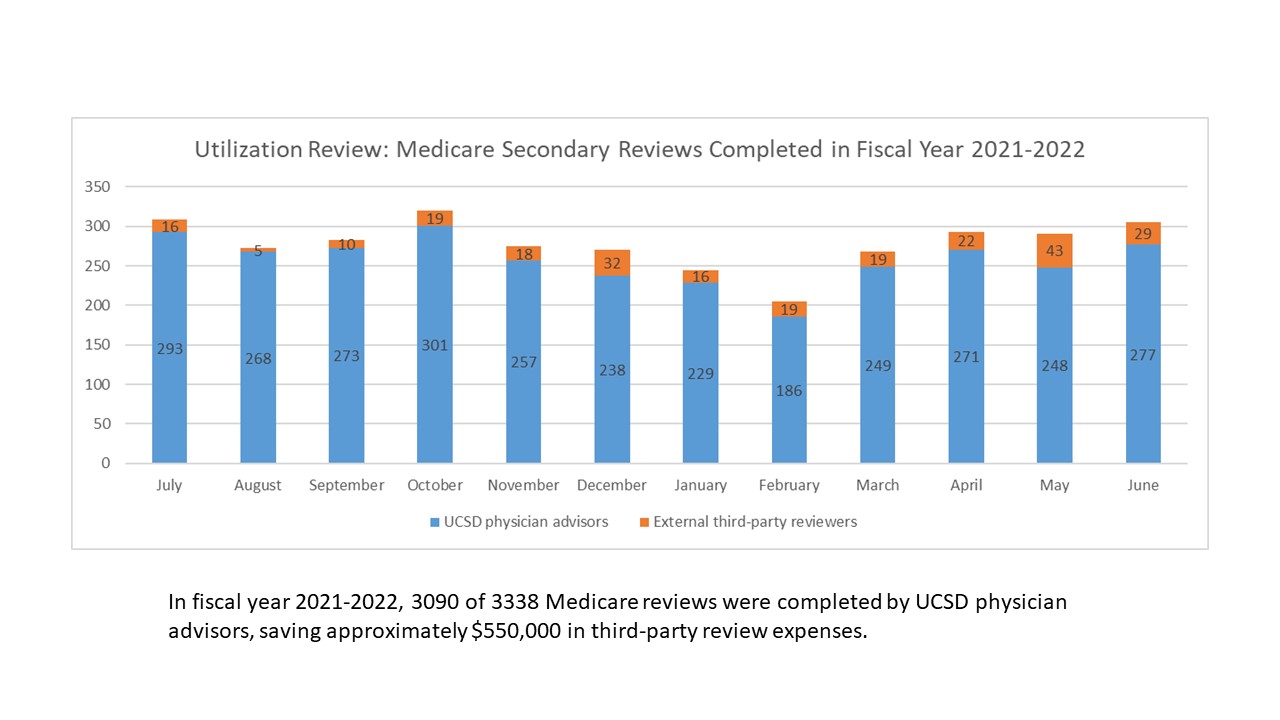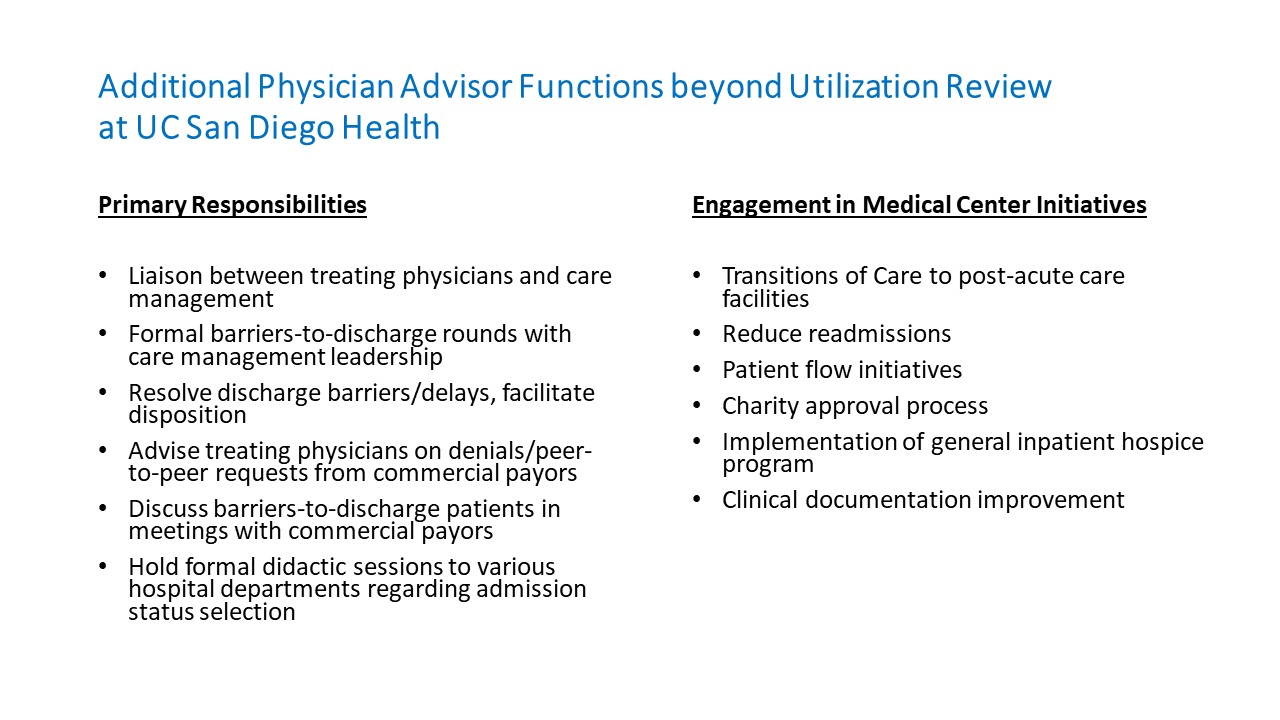Background: Upon hospitalization, patients are assigned to an inpatient or an outpatient status for the hospital stay. Failure of this status to match the requirements of the Centers for Medicare & Medicaid Services may lead to lost revenue or increased risk of audits and penalties. Timely ordering of observation services for patients with an outpatient status improves hospital billing for observation hours. Updating the status to inpatient when appropriate improves revenue capture based on the diagnosis-related group. Many hospitals use computerized programs such as Interqual or Milliman to support this status assignment and determine when a case requires additional review. Several companies offer third-party status reviews at additional costs to the hospital, performed by reviewers that are not members of the hospital’s medical staff. Hospitalists within the health system are better positioned as physician advisors to aid in status assignments and in other workflows given their interactions with providers in multiple specialties, familiarity with the hospital, knowledge of inpatient disease management, and experience with clinical documentation.
Purpose: Development of an internal physician advisor program consisting of hospitalists decreases reliance on an external organization, adds organizational value, and improves hospital revenue.
Description: University of California San Diego (UCSD) Health is a 808-bed hospital system comprised of two hospitals. Our internal physician advisor program began in January 2018 and has since expanded to 4 hospitalists who spend 2.4 full-time equivalents (FTE) providing physician advisor services.In fiscal year 2021-2022, 3090 of 3338 Medicare reviews were completed by UCSD physician advisors, saving approximately $550,000 in third-party expenses. 1242 of 5720 Medi-Cal reviews were completed internally, saving approximately $93,000 in third-party expenses.Beyond reviewing documentation and ensuring claims are billed to Medicare with the correct hospitalization status, UCSD physician advisors provide case-by-case coaching to treating physicians on documentation that, when appropriate, can support an inpatient status claim. Physician advisors work with care management to facilitate disposition when inpatient criteria are not met. UCSD physician advisors also provide formal didactic sessions to various hospital departments regarding status selection and in proper clinical documentation.In addition to this utilization review function, UCSD physician advisors also serve as a liaison between treating physicians and care management, in particular for patients with significant barriers to discharge. UCSD physician advisors engage treating physicians in goals of care discussions, about transitions to post-acute care, and when patients and families disagree with hospital discharge. UCSD physician advisors also participate in a number of medical center initiatives, including a charity approval process, implementation of a general inpatient hospice program, patient flow initiatives, and efforts to reduce readmissions.
Conclusions: Hospitalists are well suited for the role of physician advisor. Implementation of an internal physician advisor program resulted in a reduction of almost $650,000 in direct costs paid to an external agency. Hospitalists as physician advisors provide additional institutional value by supporting utilization review functions, facilitating barriers to discharge, and engaging in medical center initiatives.


